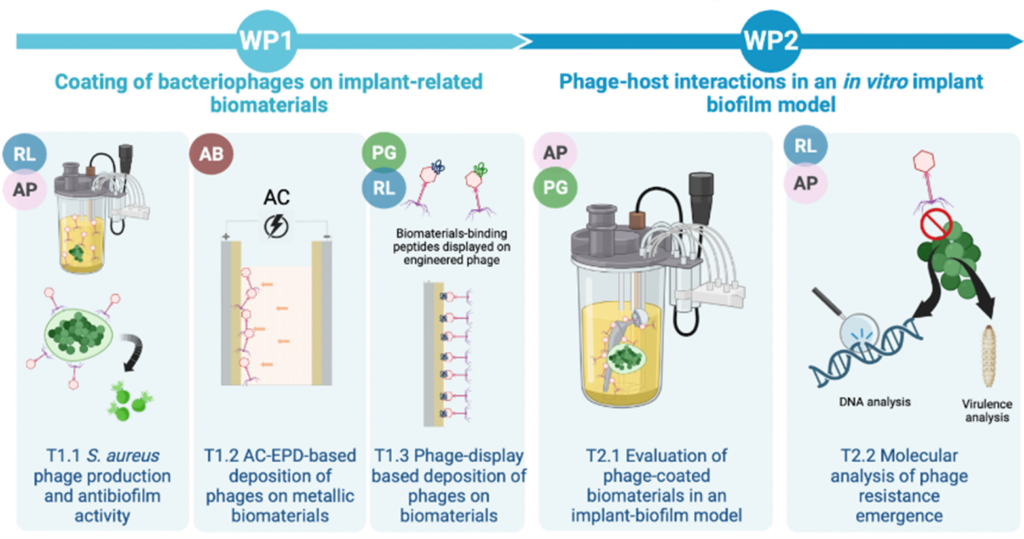Direct deposition of therapeutic bacteriophages on orthopedic implant materials: development of an in vitro, preclinical proof-of-concept antibacterial strategy (PHAGEDEPOSIT)

There is a growing surge of interest in the field of phage therapy, especially when used in conjunction with antibiotic treatments. This interest is particularly pronounced in cases involving multi-drug resistant device-associated biofilm infections, which often exhibit alarmingly high rates of treatment failure. As a result, there remains a pressing need to establish well-defined protocols for the administration of phage therapy in such infections. In this ambitious project, our primary objective is to pioneer a novel approach by developing a coating of Staphylococcus aureus phages directly on the surfaces of medical devices. This innovative strategy aims to eliminate the necessity for postoperative interventions to apply phages locally. We intend to demonstrate the feasibility of this concept, initially focusing on orthopedic implants made from various materials, including titanium, ceramics, and plastics. Our consortium boasts substantial expertise in cutting-edge pretreatment methods that facilitate the binding of phages to the implant surfaces through two distinct mechanisms: firstly, via alternating current electrophoretic deposition, and secondly, by utilizing phage display techniques to present biomaterial-binding peptides on the phage surface, thereby enabling spontaneous adsorption. To measure the effectiveness of these various coatings, we will test them in a simulated implant biofilm environment using a continuous in vitro flow cell system. Additionally, we will keep a close eye on naturally occurring phages and any resistant bacterial mutations that might develop during the incubation period. We will use whole genome sequencing to study these changes, ensuring that our approach remains sustainable and effective in the long run.
Funding scheme: Bijzonder Onderzoeksfonds under CELSA-fonds (3E230632)
People involved from Complexurf lab: Annabel Braem & Merve Kübra Aktan & Hatice Ferda Ozguzar
Period: 2023-2025
Partners : Rob Lavigne (Animal and Human Health Engineering (A2H), Leuven (Arenberg)); Annabel Braem (Department of Materials Engineering/Surface and Interface Engineered Materials (SIEM), Leuven (Arenberg)); Aleš Podgornik (University of Ljubljana/Faculty of chemistry and chemical technology/Department of Chemical Engineering and Technical Safety) and Piotr Golec (University of Warsaw/Department of Molecular Virology/Faculty of Biology).